How To Ruin Your Child’s Reading
Sick of diets, better scheduling, new workout plans, or commitments to take up a hobby? Why not instead consider a new New Year’s resolution: putting your children off enjoying reading and stories — possibly for life! — using only common objects found in your home?
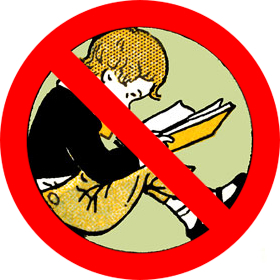 Of course, as a friend of mine recently suggested, the simplest way to do this is by failing to teach your child to read. But that’s not the route apparently paved by certain U.S. federal government public-school administrators, who according to one columnist would prefer doing away with all those dull, useless “liberal arts” fields such as literature and creative writing. What are schools for, anyway? The development of individuals to reach their sin-tainted but persistent-image-of-God personhood? Heck no. We all know that schools are for rolling out new Workers off the assembly lines so they can also run the assembly lines.
Of course, as a friend of mine recently suggested, the simplest way to do this is by failing to teach your child to read. But that’s not the route apparently paved by certain U.S. federal government public-school administrators, who according to one columnist would prefer doing away with all those dull, useless “liberal arts” fields such as literature and creative writing. What are schools for, anyway? The development of individuals to reach their sin-tainted but persistent-image-of-God personhood? Heck no. We all know that schools are for rolling out new Workers off the assembly lines so they can also run the assembly lines.
So it’s clear children must learn to read. Even those who disfavor assembly-line education practices would agree. But how may we best prevent them from enjoying fiction, especially those odd and likely useless stories about fantastic people, battles, and worlds? Here’s how!
1. Restrict favored genres only to biographies. Or, if you do allow some fiction, only permit access to historical fiction or works of overt allegory.
Option A: Real life is interesting enough. So why opt for stories and other creative works at all? Just because the Bible itself does this across multiple books (e.g., the Psalms, Proverbs, Ecclesiastes, the Song of Solomon), and just because Jesus with His parables endorsed this approach, doesn’t mean you also should. Sure, fiction may not be sinful lies. But what is its point? It’s best to rule out fiction by default and focus your children on biographies, theology, and history. They’re best for operating Christian assembly lines.
Option B: You could be a more-“libertine” parent and permit fiction. In that case, the best books are historical fiction, which are both more realistic and Educational. Or a book like Pilgrim’s Progress, which is allegorical, more like Jesus’s parables, all of which were specific one-to-one allegories — like His story about the shrewd manager (Luke 16: 1-9).
2. Make sure children know that reading isn’t really meant to be enjoyable; rather, it is Educational and Very Serious.
Enjoyment of a thing “for its own good” — a poor phrase that describes “losing yourself” in relatively sin-free joy using the good gifts of God — isn’t very spiritual. Whether your children are public-schooled, private-schooled, or home-schooled, they should see books primarily as School Territory. Even if they love reading anyway, and attempt to elope with their books, Serious Education must jealously stalk them to all quiet corners.
3. Market books to children, as they have already been marketed to you, as Moral.
 One publisher summarizes its mission to provide “good and wholesome reading” to endorse “character traits [that] children assimilate during their formative years [which] are the foundation from which a life of faith in God is built,” and offering “inspiring role models” who consistently demonstrate “perseverance, courage, hope, loyalty, humility.”
One publisher summarizes its mission to provide “good and wholesome reading” to endorse “character traits [that] children assimilate during their formative years [which] are the foundation from which a life of faith in God is built,” and offering “inspiring role models” who consistently demonstrate “perseverance, courage, hope, loyalty, humility.”
Unlike imaginative stories by others that show characters struggling against their own sins, before growing and winning victories, and even unlike the Bible itself, it’s best to skip to the end and show characters who almost immediately attain moral prowess.
With or without explicit (pun intended) endorsement, this approach ensures that children — and you — accept a view that human nature is inherently good, and only corrupted by outside Things. This concept is Biblical, approved by most of church history and Scripturally solid theologians over the centuries, and is favored by Jesus Himself (Mark 7).
4. Give children only poorly written books.
Let us say that you — contrary to the above recommendations — are more open a parent than others. You even don’t mind your children reading fantasy and sci-fi, including the currently trendy “dystopian” or “post-apocalyptic” genres. You may even go so far as to “screen” books for children, helping them to practice Biblical discernment and enjoyment as they read (though this seems a drastic and unnecessary step). Given these practices, then, it is crucial to read these books only for their authors’ or publishers’ credibility, endorsements by others, or perhaps moral themes (see no. 3, above), and not for the skill and artistry of the story behind told. After all, God in His own Story made it clear that He cared little about beauty and craft, or how His Story was told, only that it was told at all.
5. Teach children to love reading using only your words, not actions.
My wife recalls meeting a parent determined to teach her children to love reading. On her own reading table, however, were only a couple of magazines. This practice is pivotal. To make sure your children suspect reading is an ultimately useless practice, you can do no better than to use only words and not actions to encourage your children to read.
This way you will surely instill this lifelong belief: that reading books is for children.
Some may object that even busy parents should make time for reading, first the true Story by the ultimate Author, but also works of nonfiction and imaginative fiction. In an age of audiobooks and reading software on smartphones, fewer excuses exist not to read. But this is also unnecessary. Parents should focus only on running their own child-assembly lines.
Conclusion: crucial redefinitions for ruining your child’s love of reading.
We can’t guarantee perfect results. Every child is different, and it may be that your child grows to develop a love for imagination-driven joy in God (and thus increased love and joy in Christ alone) despite your best efforts. Therefore it’s vital to redefine these terms:
“Humility”: holding yourself above a story to use its Parts for other life goals.
“Good theology”: ignoring the Bible’s genres of revelation, and/or adding to its commands.
“Building character”: implicit refusal to enjoy losing yourself in God’s creation as reflected in the subcreations of stories, leading to imagination-driven wonder that leads to worship.






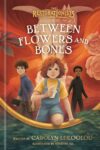
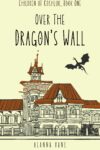




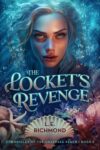
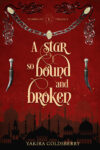
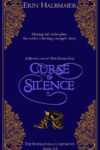























I knew people like this in my homeschool group growing up. I always wondered how their kids turned out.
Also, this describes the first couple of chapters of Understood Betsy. The rest of the book deals with how the normal half of her family deprogrammed her. It’s not speculative, but it’s a lovely old book.
Stephen,
This is an excellent article. I’m a parent of 10 year old son and a 3 year old daughter and I’m always concerned with the diminished role of reading in our culture.
With the tablets, iPods, iPads, Xbox etc…..it seems the love of reading is being pushed further into the background as a source of entertainment and enjoyment.
An article like this one is a good wake-up call for its relevance.
Thanks!
Marion
Yup, I knew people like this too. The one girl I know from such a family grew up and found her own path – she and her hubby love all things scifi and fantasy and want to go to ComicCon now – but back when I first met her (I believe she was 18 or 19) she wasn’t allowed to read anything fantastical (or else, IIRC, was just being allowed to read a little bit of the more strict stuff.)
Me, I didn’t need to be taught to love reading… it just happened. XD Might be because I discovered books as another world when mine was pretty lonely. That, and books are a wonderful way of absorbing information when parents don’t have all the answers. The story goes in my family that my mom taught my brother to read so that he would stop asking her ‘why’ and ‘how’. XD
[…] this context, you can imagine my delight upon reading E. Stephen Burnett’s “How to Ruin Your Child’s Reading.” Burnett provides five easy steps to destroy a child’s love of literature by sucking all […]
Be careful with #4. Not many kids really care about the craft or skill in books depending on the age, and many become lifelong readers on a diet of things most people would turn their noses up at. Your boy may not be able to stand Harry Potter but he will devour Matt Christopher’s sports books, or your girl will be bored to tears by The Secret Garden, yet beg you for stacks of books about ponies.
If anything, a lot of the well-crafted books often are neglected by kids. Most recent Newberry Award winners are a good example: has anyone really ever heard of a kid that likes Neil Gaiman’s the Graveyard Book? But a lot seem to love Percy Jackson or Darren Shan.
This isn’t an argument for low quality in books, but I think the common thread in all these problems is trying to control reading in order to deliver a specific result. The idea isn’t to make a love of reading, as opposed to make reading a tool to deliver a well-behaved, moral child. Ironically, the best way to get a child to read in my opinion is to make him own the act and encourage his agency. Let him choose what books he reads and buys within limits, and he will see reading as a way to express his autonomy. This was why libraries are so valuable: the child can get his own books, and there’s even stealth morality and good habit forming in needing to be a proper borrower.
Side note: The Graveyard Book is not well enough known for some reason. I’d hand it to any kid about 10+. I certainly enjoyed it.
My parents didn’t restrict my reading to any genre, but I know my sci-fi side really bloomed once I hit college and had access to things like Doctor Who, Firefly, Terry Prachett, and Neil Gaiman.
So my parents really tried — they really did — to teach me to appreciate the moral lessons to be gleaned from books, to avoid over dosing on more suspect books, and to avoid like the plague such off limits as Harry Potter.
After observing the way me and my siblings devoured the Redwall books, we were limited to one a month (Do you know how long a month is to a 10-year-old? :D)
But it all came to not, and I loved reading anyway…. I just had to work out of my legalistic lofty place from where I looked down on books, sifting them for Good Lessons.
My older brother, however, quickly dispensed of fiction in general, settling for non-fiction and books about mechanical things. I wonder how much is due to the reasons above, and how much is just the way he thinks — he’s an engineer now. 😀